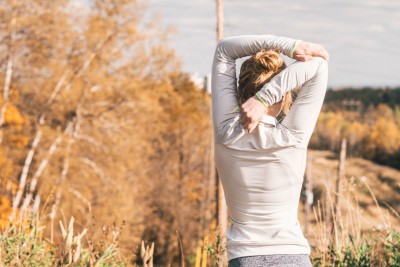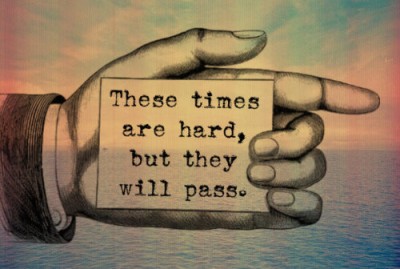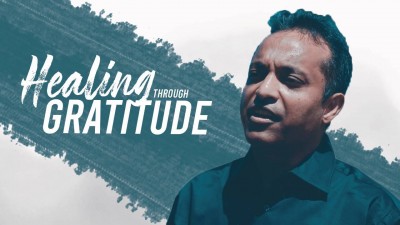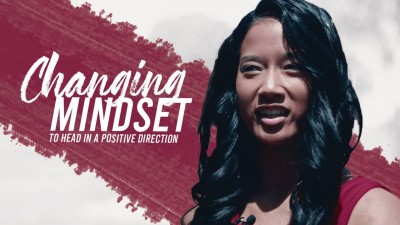Mindfulness is a concept that is often spoken about in recent times, with people giving advice such as “be mindful of your money”, or “be mindful of what you say”. Yet mindfulness is so much more than being frugal or considerate. It is an awareness tool that you can practice at any time and in any location, that will help you become more present and in control of your life. You don’t need equipment, or even a quiet place, you simply need to focus your attention into the present moment and become aware of your thoughts and feelings.
So, what exactly IS mindfulness?
Mindfulness is the ability to become fully present with what you are doing, including what you are thinking and feeling, without becoming overly reactive to the experiences.
It can be used as a tool to enable you to step back from the different thoughts and feelings as they occur, and observe them without judgement, instead of being swept up in strong emotions.
Imagine, for example, you are sitting in a theatre watching a movie on the big screen. Different scenes in the movie might make you feel different ways, such as angry, sad, or even scared, yet you recognise that it is just a movie so you don’t get too emotionally involved.
You might not always be in control of the different thoughts you experience, but by practising mindfulness, you can learn to be less affected by them.
Essentially, the practice of mindfulness is about observing where your thoughts are focused, and learning how to redirect or keep your thoughts where you want them to be.
Have you ever been driving along a familiar road, only to realise you don’t actually remember the last five kilometres because you were lost in thought? It is quite a common occurrence and can be quite disconcerting.
By practising mindfulness you will become more present in your experiences, and have greater control of how you act and react to the world around you. Giving you a greater sense of purpose and enabling you to regenerate your outlook on life, as well as making your life more rewarding and enjoyable.
The role mindfulness can play in our modern world
The concept of mindfulness dates back thousands of years to eastern philosophy and the practice of meditation and self-awareness. Yet, due to the advancements in modern technology, and the increased stress of modern living, the practical application of mindfulness is needed in today’s modern society more than ever.
Fortunately, modern medicine has caught on to the benefits that mindfulness can have on stress-related mental health issues.
In 1979 Professor Jon Kabat-Zinn, founded the Stress Reduction Clinic at the University of Massachusetts Medical School and created an eight-week evidence-based ‘Mindfulness-Based Stress Reduction’ (MBSR) program. This program involves intensive mindfulness training, including mindfulness meditation, body awareness and yoga, to help assist people with anxiety, stress, depression and pain.
Since its creation and implementation, the MBSR program has now reached medical centres worldwide. In 2015 it was reported that close to 80% of medical schools were offering some form of mindfulness training and research.
The benefits of mindfulness are being recognised worldwide, with many schools, universities and workplaces providing mindfulness training to their staff and students, to help promote health, wellbeing and productivity.
A group of researchers, working at Johns Hopkins University, wanted to find evidence that backed up claims that mindfulness practices, such as meditation, can help improve stress-related outcomes, such as anxiety, depression, disrupted sleeping patterns and substance abuse. They found 47 trails, with 3515 participants, that provided moderate evidence that mindfulness practices helped reduce anxiety, depression and pain.
Some of the other benefits that mindfulness practices help promote include:
- a calmer and more peaceful mind
- better stress management
- improved social skills
- enhanced relationship satisfaction
- greater focus and concentration
- improved memory retention
- enhanced mental flexibility, or perspective
How can you practice mindfulness?
What makes mindfulness such an accessible tool is that you can practice it at any place and time. In fact, the more often you practice mindfulness exercises, the easier and more natural the practice of awareness becomes.
However, even though mindfulness is a state of mind you can practice for yourself at any time, it is helpful to use guided meditations and other mindfulness applications, to assist you in the beginning.
Fortunately, there are many fantastic mindfulness meditations and programs that are available that will help you learn how to implement more mindfulness into your life.
Real-Life Stories
To put into perspective some of these above benefits of mindfulness, let me tell you the story of Jenna, a 32-year-old woman who has dealt with anxiety and overthinking most of her life. Anxiety and ruminating thoughts had prevented Jenna from pursuing many of her dreams, by making her feel inadequate and fearful.
One day Jenna attended a mindfulness meditation class and was overwhelmed by the calming effect it had on her mind. She began to practice mindfulness meditation regularly and they helped her step back from the negative feelings her anxious thoughts evoked and instead observed these for what they were; just thoughts. This helped empower Jenna to feel more confident and take back control of her life.
If you would like to read more about Jenna, and her positive journey with managing anxiety with meditation, her story is available in the Comprosition Story Repositories.
My Thought:
I can speak from experience when I say that the mind can feel very overwhelming at times. We all experience negative thoughts and feelings, including myself, which is why I believe that mindfulness is a practice that everyone* can benefit from.
Mindfulness is an empowering tool, that will work to strengthen your mind and help you gain a greater sense of control over your life, and the way you act and react to the world around you.
It can help enable you to feel how you want to feel, instead of being swept up in challenging thoughts and emotions.
However, just as one piano lesson won’t make you a natural pianist, mindfulness needs to be practised regularly.
Think of your mind as a muscle. Just as a muscle needs to be exercised to keep it strong and capable, mindfulness needs to be practised regularly to help cultivate awareness into your everyday life.
This is why consistency is an important consideration.
Fortunately, there are many ways you can practice mindfulness. For example, you can set yourself a reminder that each time you leave your home, you pause to become aware of your body, your breathing and your thoughts.
Comprosition Goal Setting Expert Tracy Shephard suggests setting specific, realistic and attainable goals is an excellent way of working towards achieving positive change and gaining a positive sense of control in your life.
I encourage you to practice mindfulness as often as you can so that you can gain a positive sense of control, regenerate your mindset and live your life to its fullest!
*Please note: This blog is for education purpose only. If you are experiencing clinical depression, please reach out to your health professional.
Sources:
Davis, D. M., & Hayes, J. A. (2011). What are the benefits of mindfulness? A practice review of psychotherapy-related research. Psychotherapy<https://doi.org/10.1037/a0022062>
Hülsheger, U. R., Alberts, H. J. E. M., Feinholdt, A., & Lang, J. W. B. (2013). Benefits of mindfulness at work: The role of mindfulness in emotion regulation, emotional exhaustion, and job satisfaction. Journal of Applied Psychology<https://doi.org/10.1037/a0031313>
Philip David Zelazo, Kristen E. Lyons. ( 2012) The Society for Research in Child Development
<https://doi.org/10.1111/j.1750-8606.2012.00241.x>
Michael K. Rasmussen & Aileen M. Pidgeon (2011) The direct and indirect benefits of dispositional mindfulness on self-esteem and social anxiety, Anxiety, Stress & Coping <10.1080/10615806.2010.515681>
Goyal M, Singh S. (2014) Meditation Programs for Psychological Stress and Well-being: A Systematic Review and Meta-analysis. JAMA Intern Med <https://doi.org/10.1001/jamainternmed.2013.13018>
Main photo by Darius Bashar on Unsplash






























